PRESERVING A MILITARY LEGACY FOR FUTURE GENERATIONS
The following Reflections represents ET2 David Ingebright’s legacy of his military service from 1972 to 1976. If you are a Veteran, consider preserving a record of your own military service, including your memories and photographs, on Togetherweserved.com (TWS), the leading archive of living military history. The following Service Reflections is an easy-to-complete self-interview, located on your TWS Military Service Page, which enables you to remember key people and events from your military service and the impact they made on your life. Start recording your own Military Memories HERE.
Please describe who or what influenced your decision to join the Coast Guard.

It was 1972, and I had just graduated from the Electronics Technician program at the DeVry Institute of Technology in Phoenix, Arizona. The Vietnam War was in full swing, and the draft lottery was being used to draft young men my age. Since I lost my college deferment, I was at the mercy of the lottery, and I didn’t feel like gambling on it.
DeVry graduates were in high demand, and several large companies came to the school to interview graduates. Among them was the Coast Guard Recruiter. They offered me a PO3 ET out of boot camp. (in writing) I thought this was the best course of action for me. I get to do a lifesaving job, I’m guaranteed a PO3, I get to do electronics, and I don’t go to Vietnam.
Whether you were in the service for several years or as a career, please describe the direction or path you took. What was your reason for leaving?
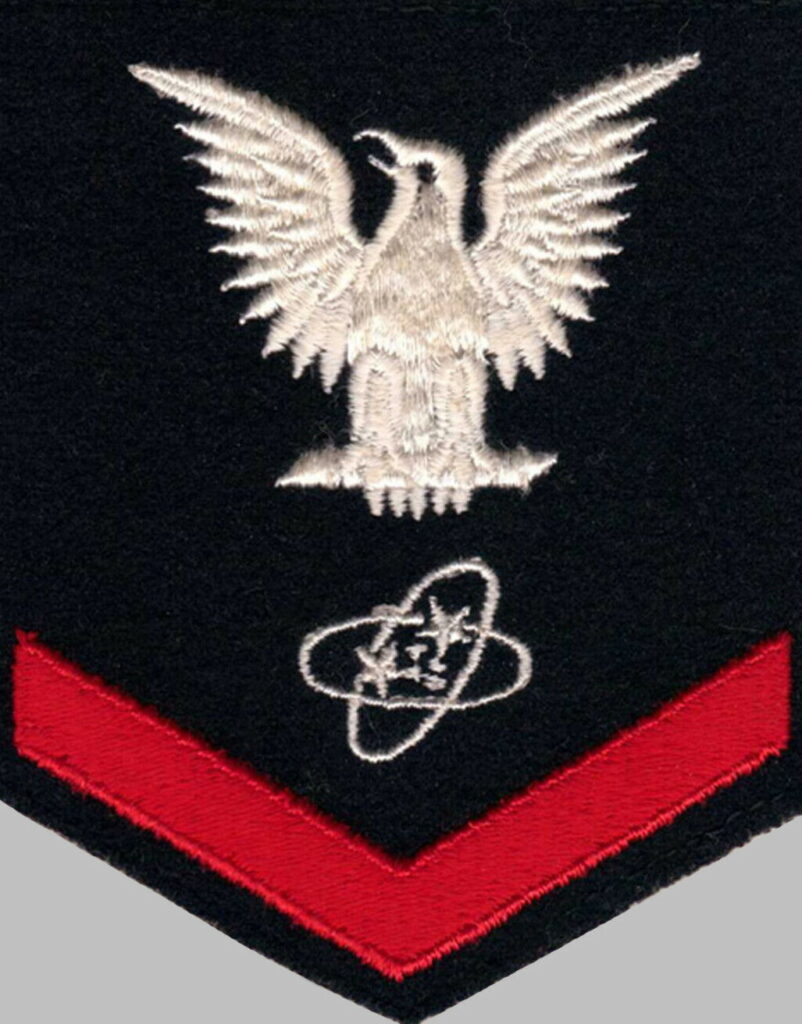
I joined with the idea of seeing what the Coast Guard was all about. I had some good electronics skills, an E4 rating, an inquisitive mind, and a whole lot of energy. I soon realized that military life was not for me, but I was committed to doing the best job I could do for the four years of my enlistment.
If you participated in any military operations, including combat, humanitarian and peacekeeping operations, please describe those which made a lasting impact on you and, if life-changing, in what way?
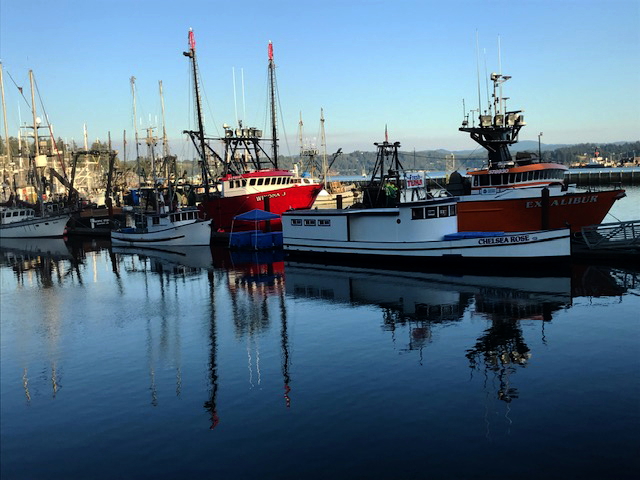
As soon as I arrived from boot camp and got settled in at Group Monterey, Calif, a huge ATF sting operation was sprung on the local fishing fleet for the illegal selling of sea stores tobacco and alcohol. Several dozen fishing boats were seized and tied up four deep at the Coast Guard pier. Our cafeteria was turned into a command post, and as a “new boot,” I was assigned a midnight shift walking guard duty to ensure the security of the seized fishing vessels.
We learned the reason for the sting was that some Monterey fishermen were going up to San Francisco and obtaining tax-free liquor and cigarettes to be consumed only at sea as “sea stores.” Instead, they were taking the supplies to Monterey and selling them to local private interests.
It was a dark time to be a coastie in Monterey as local coast guardsmen were not popular in this small fishing town. There was no lasting impact except a big eye-opener to a nineteen-year-old and the wide-eyed alertness of seeing shadows moving in the darkness of the pier.
Another time I participated in rescuing a sailboat on fire and sinking. The Group ETs were occasionally directed to stand radio watches due to a shortage of Radiomen. This particular night, I was standing a radio watch, tilted back, listening to the droning static of the 2182 distress channel, when I heard a faint voice calling “Mayday Mayday.”
I was able to connect with the voice and learned it was a sailboat in distress about 500 miles off the coast. None of the other radios in the district could hear this guy except this one remote radio at PT Sur. Myself and our OOD worked through the rescue coordination center in San Francisco, and soon the air station had aircraft assets on the way. His signal faded in and out, but I continued to reassure this guy to hang on and that help was on the way. About an hour later, he radioed that an aircraft was circling, and he thanked me over and over.
Did you encounter any situation during your military service when you believed there was a possibility you might not survive? If so, please describe what happened and what was the outcome.
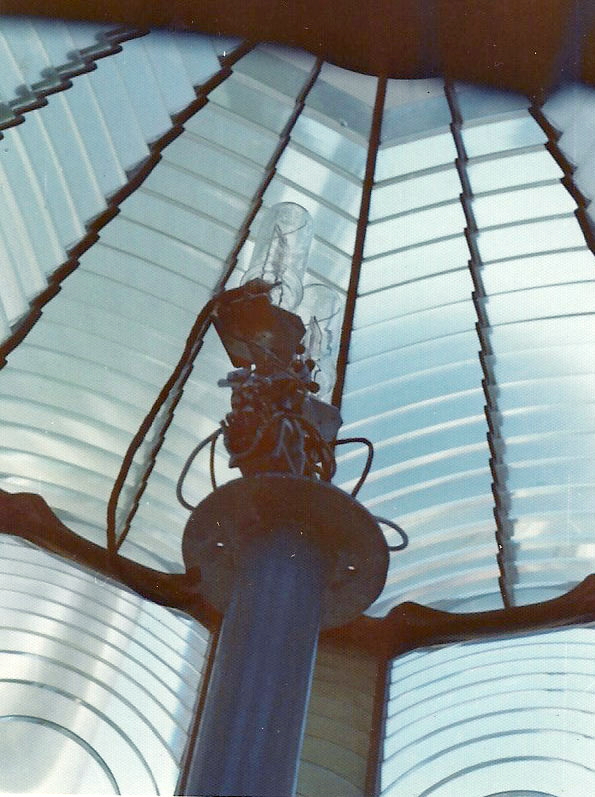
Most of the Monterey ET job consisted of driving up and down the California coast road, Highway 1, to work on electronics equipment at various lighthouses 95, footers, and remote radio sites. Three techs serviced five major lighthouses, various beacons, fog detectors, remote radios, some small boats, and other equipment, including two 95-footers, the Cape Hedge in Morro Bay and the Cape Wash in Monterey. There was a lot of driving, as the group was responsible for 250 miles of rugged central Calif coastline. There was little redundancy in any equipment, and any failures caused the immediate dispatch of an ET to go fix whatever was broken.
Driving the winding and treacherous Highway 1 in storms, at night, in the rain, and other ugly weather was dangerous and, at times, frightening. Once, we came upon an accident in heavy rain at night on our way to repair an equipment failure at the Pt. Sur lighthouse.
A car had hit a rain-soaked boulder rockslide and was half off the road and very close to falling over the edge to the broiling seas and rocks below. We were driving a CG Jeep with a radio and blue lights on top. A seaman and I stopped traffic and helped the driver out of the teetering vehicle in the driving rain. We called the radio room at Monterey and got CHP help coming, but looking back; it was just a little exciting blip on a continually busy CG work life.
Of all your duty stations or assignments, which one do you have fondest memories of and why? Which was your least favorite?
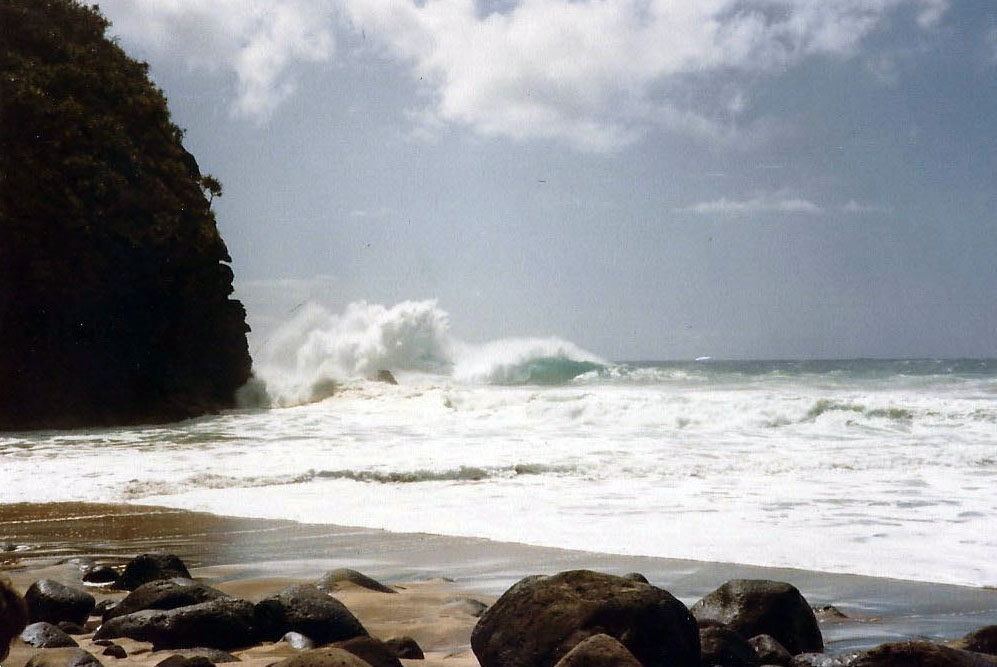
I only had one duty station, but I spent a fair amount of time visiting the five major lighthouses. All were of the 1800s vintage, and all were occupied by families who lived at the lighthouse and maintained the facilities, stood watches, and that was their home. These were solid, prominent, majestic structures, and you could feel the years and years of watchstanders who spent their days keeping the light and foghorns running.
One, in particular, stood out, Pt Sur. It was this rock mound several hundred feet high with houses for families cut from some local quarry and as solid as could be. The main lighthouse structure was on the far side, cut into a sidehill with a huge Fresnel lens so large three people could stand inside it. I loved that lighthouse, mainly because I spent a lot of time there working on the radio beacon, timing equipment, and the remote high-frequency radio.
But there was a vibe that I could not put into words. It was just a great place, sticking out into the Pacific, warning ships with a powerful light, a fog horn, and a radio beacon. You looked down at the rocks and churning waters below, and you could almost envision the famous shipwrecks in the 1700s and 1800s before the lighthouse was built.
My CG friends and I would sometimes go there on weekends through the locked gate to have a driftwood fire, hotdogs, and a beer on the sweeping beach. One time a group of us made sand candles, and I still have one! Later it was automated, the family quarters boarded up, and everything monitored by a computer in the radio room at Monterey.
I went there probably once a week to fix something and used some extra time to explore the place. I found the remains of a very old garbage dump and ran across an old silver spoon. On the top of the rock, I located the remains of some WWII lookout building and found an insulator for a radio antenna. These things gave me a connection that I still have.
From your entire military service, describe any memories you still reflect on to this day.
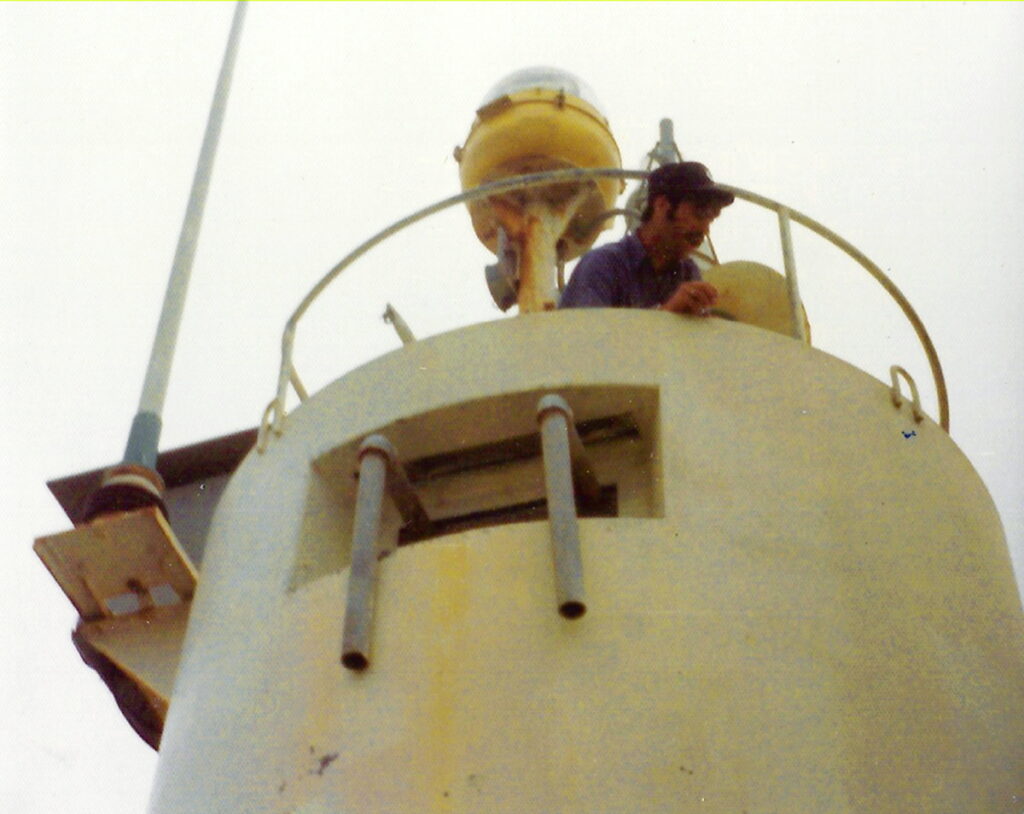
There were two memories that I still reflect on. One was working on the radio beacon on the breakwater at Morro Bay. The Coast Guard had placed a low-power radio beacon at the end of the breakwater so boaters and fishermen could find the harbor in fog or in bad weather using a radio direction finder.
Most every boat that was serious about getting in and out of Morro Bay had radar by the mid-seventies, but the CG still maintained this beacon. It was an old tube-type radio beacon that continuously transmitted the Morse letter M. The watch stander on the Cape Hedge monitored the beacon 24/7 and called the Group OOD if it quit, which it did with maddening regularity.
The radio was located in a 6-foot diameter vertical tube bolted to the end of the breakwater. It was about twenty feet high, and it had a watertight door at the bottom and bolted to a concrete pad. It was at the very end of the breakwater, and there was no road to it, and waves would break over it in storms.
A ladder inside led up to a second floor, where the beacon was located on a steel shelf. The structure was solid but damp and cold inside; the only access for maintenance people was to be brought out to the end of the breakwater in the Cape Hedge’s 14′ open Boston Whaler.
The ET and the coxswain driving the whaler had to work together to time a jump from the whaler to one of the huge wet slippery granite rocks on the leeward side of the breakwater. Wave heights were typically three feet of surge. It also had to be a one-handed jump because the ET had his toolbox in his other hand. I still think about the many dangerous jumps, some wet, some dry, and some with wet tools. We laughed about it, but it was dangerous work. I was lucky.
What professional achievements are you most proud of from your military career?
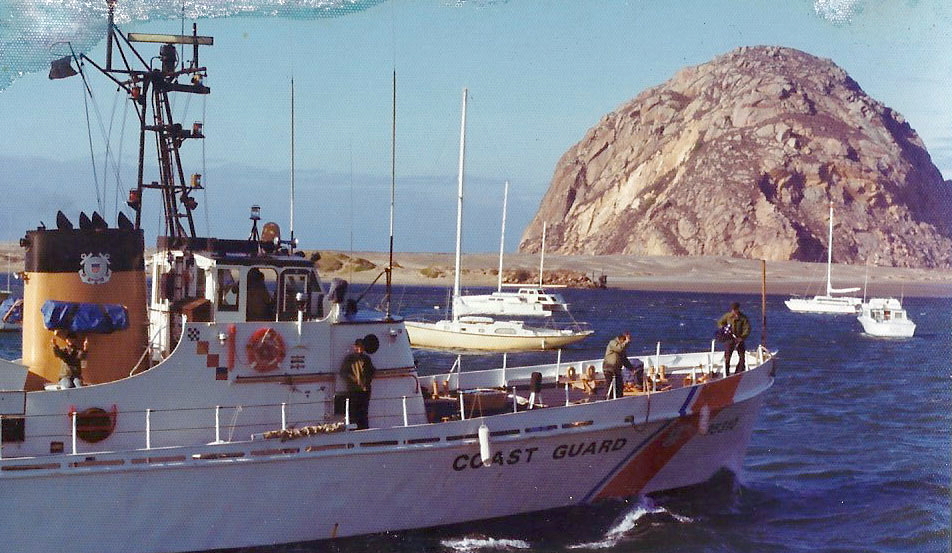
One achievement was a remote-controlled automatic switch that I designed and was able to implement at a remote radio site, and I submitted it as a suggestion. The remote HF radio was on a windswept hill above the ocean about 90 miles south of Monterey near Cambria, California.
This remote radio site was a damp and cold 20×20 concrete building. It was an abandoned bunker-type affair adjacent to a USAF coastal surveillance radar site, and they let the CG use the building. It contained two HF Marine radios that were remote-controlled over telephone lines by the duty RM at Monterey.
All was fine until the RM detected that the radio was out of service, usually at night or during a storm. The duty ET was called and immediately had to drive ~2 hours to the radio site and change the cables to the spare radio. The bad radio was troubleshot on-site or brought back to the ET Shop at Monterey. My invention was a relay box that the RM could dial-up, and it would switch all controls and the antenna to the spare radio. Then the ET could then drive to the radio site to effect repairs in a more leisurely manner. I received a check for $80!
The other achievement was a tough problem with the SPS-53C radar on the Cape Hedge. The radar would lose video and would be out of service, again with maddening regularity. No CG ship could go to sea without radar, so there was immense pressure to get it fixed as fast as possible. I spent hours tracing the “target video” through the myriads of circuit cards. I was pulling my hair out, but I kept at it.
Finally, I found the video was found shorted out by a small crystal diode deep inside the radar unit. I called the RM at Monterey on the ship’s VHF and had the duty driver bring me one from our stocks in the ET Shop. That fixed it. The same problem started happening to the radar. But the next time that happened, I went right to it and was so happy. I learned to keep at it, not give up and use critical troubleshooting skills, which helped me fix things for the rest of my life.
Of all the medals, awards, formal presentations and qualification badges you received, or other memorabilia, which one is the most meaningful to you and why?
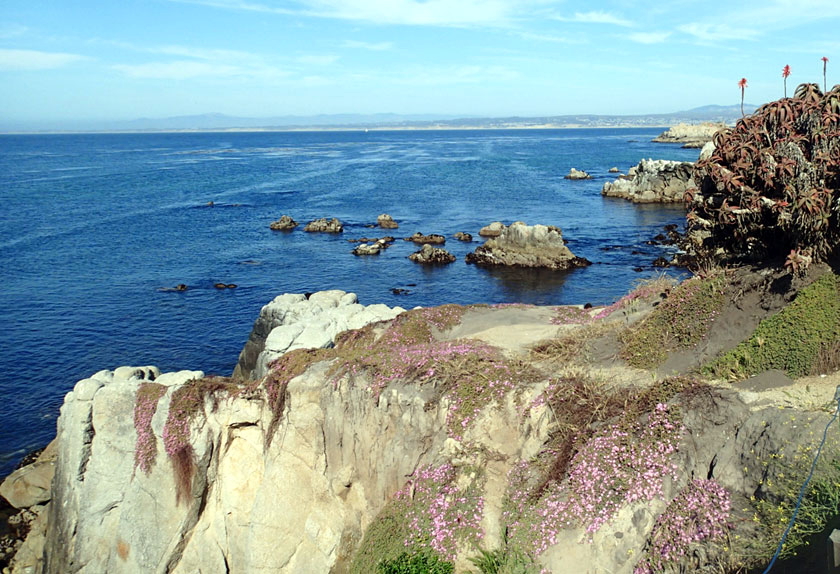
There weren’t many rewards or thank yous for our hard work. Occasionally, the station would buy a keg of beer and throw a party, but usually, it was because someone was getting discharged or after a good readiness inspection. I did receive that $80 Suggestion Award check for the remote-controlled transmitter switch that I designed, but I felt it saved several hundred dollars a year and, most important of all, kept the radio at 100% readiness. Surprisingly, I only received the $80 check after discharge and only after writing to the Coast Guard and complaining about the lack of the promised check! I cc’d my Congressman on the letter, and maybe that helped!
I didn’t need any medals or awards; It was enough of a reward to be able to spend four years living and working on that very beautiful and rugged section of the central California coast. I try and return every few years, and it never gets old.
Which individual(s) from your time in the military stand out as having the most positive impact on you and why?
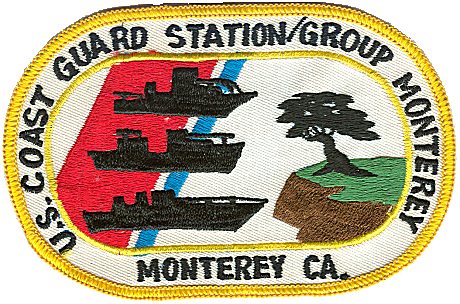
The CO and XO at Group Monterey were the most influential. The CO was Lt. Armand Chapeau, and the XO was CWO4 Dale Wilkins. Lt. Chapeau was understanding and amicable during two of my worst screw-ups. XO Dale was a kind mentor and always approachable. There were a couple of times where I should have had an article 15. Captains Mast and Lt. Chapeau gave me another chance.
One time I was hanging out with some enlisted troublemakers on the crew, and we all bought BB pistols. We were on the CG pier by the small boats shooting at cups floating in the water, and I left and went to eat dinner. Later it was found that some windows had all been shot out of the CG boathouse. I was called onto the carpet along with my ‘friends.’ I could honestly say that I had no part in the damage, but I was also seen there with the others.
Another time there was an electronics failure of some kind in the southern part of the group, and I was called to go fix it. I was feeling sick with a bad cold or the flu. I didn’t want to go, but I had to go; there were no other ETs available. My girlfriend that I was living with (and later married) offered to do the two-hour drive to Morro Bay so I could rest and get ready to fix whatever equipment had died. She was a good driver, and I tried to close my eyes and settle my stomach.
As luck would have it, we were driving south on the 101 freeway towards Morro Bay, and the CO and XO passed us on the freeway going the opposite direction, recognized the CG vehicle, and noticed the driver as a non-Coast Guard. This was the 101 Freeway, and it was a freak thing that we even passed each other at a place where we would be recognized, both vehicles doing 65mph in opposite directions. Lt Chapeau immediately did a U-turn across the median and activated the blue light on top of his CO’s car. We pulled over as if in a real traffic stop. Lt Chapeau approached the driver’s window and asked my GF if she possessed a government driver’s license, and she admitted that she did not. There was a lot of tongue-lashing, and then we continued south to fix the trouble (with me driving). Nothing was ever said… But it was a stupid move on my part. The event made me become more honest and aware of rules and regulations.
List the names of old friends you served with, at which locations, and recount what you remember most about them. Indicate those you are already in touch with and those you would like to make contact with.
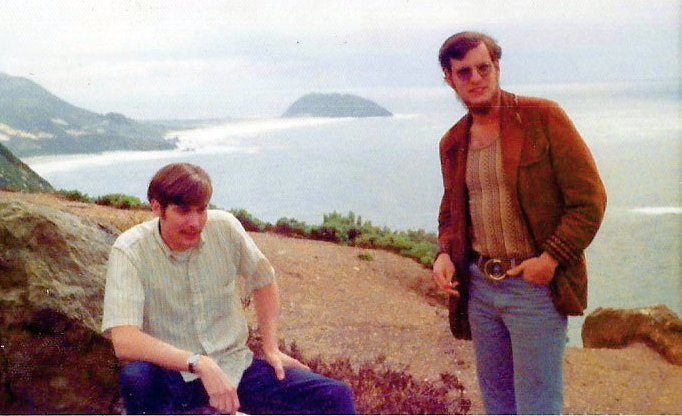
I had several good friends, and one has passed others I have lost touch with. Mike Eells and Danny Brown, and Patrick were all good friends and shared many good times over the four years of my enlistment. Now just a blink of time in my past.
Can you recount a particular incident from your service which may or may not have been funny at the time but still makes you laugh?
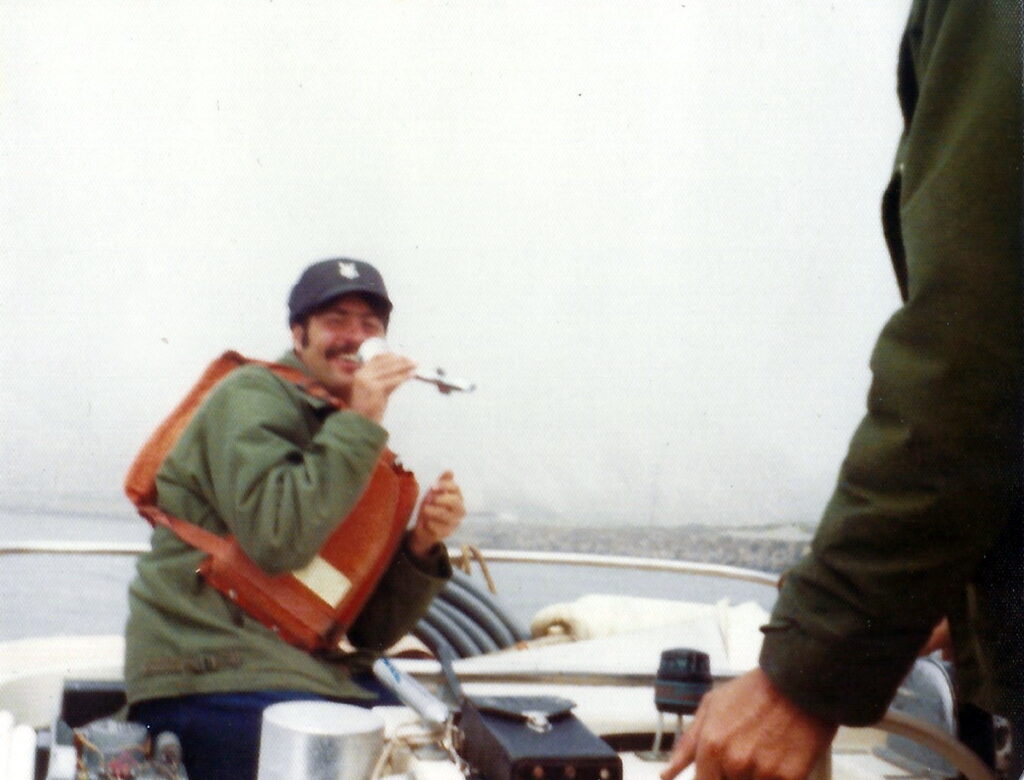
One particular incident that happened with maddening regularity I will never forget. It was taking the 14′ Boston Whaler out to the Morro Bay Breakwater to fix the radio beacon. Usually, another electrician and I had to jump from the bow of the whaler onto the huge slippery jumbled granite rocks of the breakwater. The surge was about three feet, and the rocks were huge.
The Coxswain and the ET had to work together to time a jump from the bow to the rocks. I always dreaded this part. We all laughed, but it was dangerous. You had one hand holding your toolbox and the other hand to grab the slippery rock and quickly pull yourself up. There were maybe fifteen seconds to grab, hold and scramble up before the next wave hit. There was more than one time I got wet.
What profession did you follow after your military service, and what are you doing now? If you are currently serving, what is your present occupational specialty?
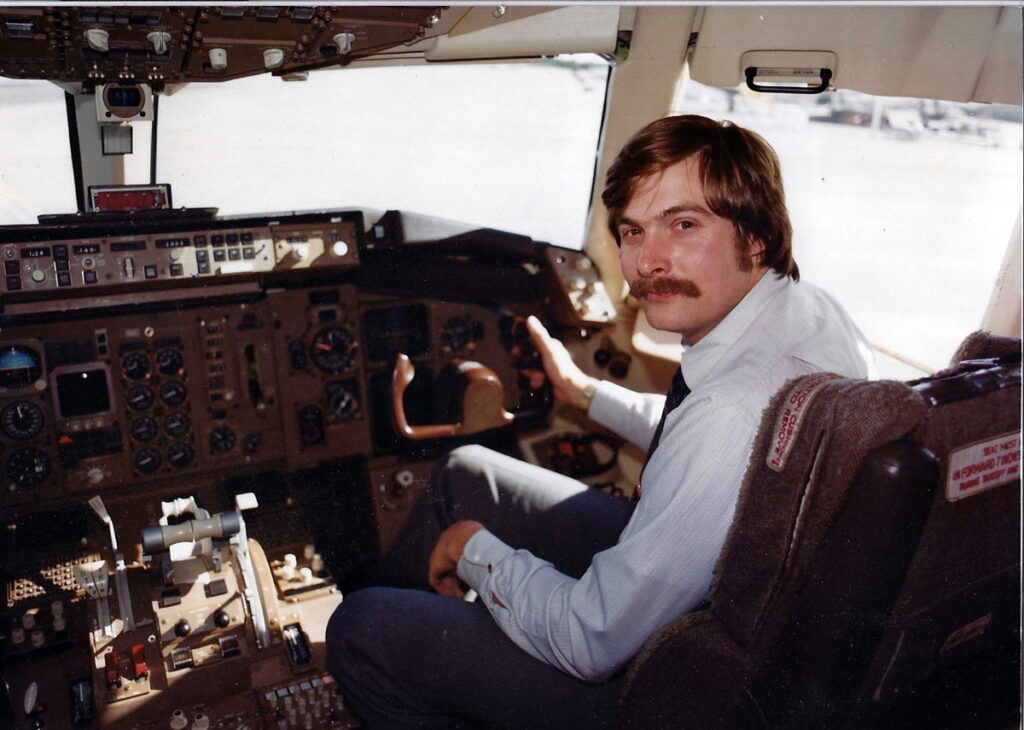
After discharge, I moved back to my home in Seattle, WA. I wanted to obtain an EE degree and continue in electronics. I really liked working in that field and had a knack for inventiveness and troubleshooting. Electronics had always been a draw for me. I enrolled at the local community college using my VA benefits and began taking electronics and engineering prep classes. At some point, I decided I liked the hands-on part of electronics and maybe not engineering. I wanted to go into the broadcasting field and took extra TV production classes. I obtained an FCC “1st Phone” license and graduated with a 2 yr degree in electronics technology. It was time to start my life’s career.
I knew a tech that was working on radios and radars on King Crab boats at the Seattle fisherman’s terminal. He said he was making good money working marine electronics on the local fishing fleet. So I landed an ET job at a company called Seatron and started working on fishing boats, installing and repairing radios and radars. It was fun being on the water again. I was sent to Alaska, flew with a bush pilot to some remote canneries, and tweaked their radios for the upcoming season. It was great fun working on ships again, but I sensed the industry was going to undergo a big change. There was little regulation of the King Crab quotas, and I saw the crabber profits begin to thin. Seatron was struggling.
It was time to really look for a permanent career. I landed a part-time job at a local FM station. The only job they had at the time was announcing and running the control board. It was fun, and I loved the technical and performance work in broadcasting. A little later, I landed an interview with the chief engineer at the local NBC affiliate. That didn’t go well. He looked at my resume, then looked at me, and he got this frown look on his face, and I shrank into my chair. He said, “You are wasting my time; you need to go to a small town for two years and work in a small market, then come back and see me.”
I wasn’t about to move, so my next stop was the Boeing Co. About a week later, I got an interview with one of the avionics shops, and they said, “How soon can you start.” That began a 34 yr career in the Boeing flight test avionics group, first as a technician, then as a flight analyst, and, later, as a Flightline manager.
In what ways has serving in the military influenced the way you have approached your life and your career? What do you miss most about your time in the service?
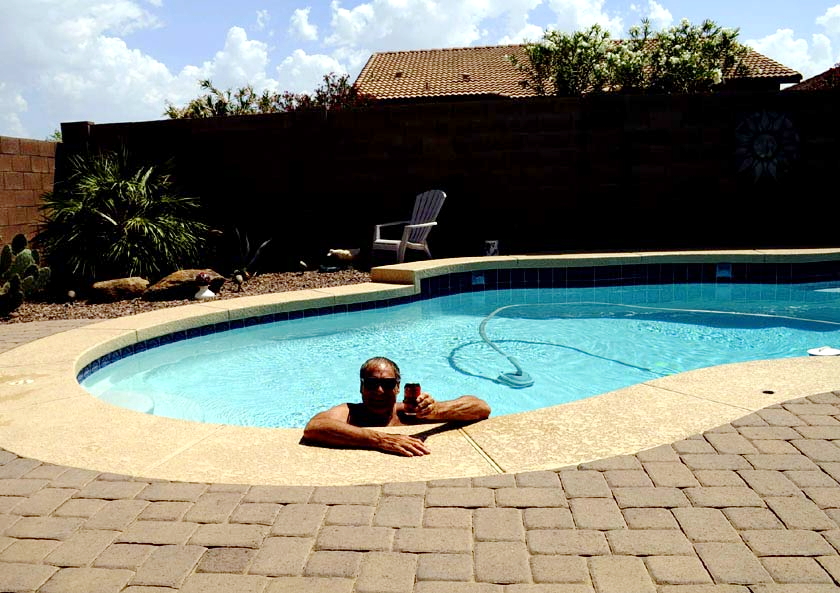
The Coast Guard helped me get my act together as a young adult. I learned about authority and taking orders. I learned how to how to set goals and get work done. I learned to stick to tough problems. I learned how to deal with people from different walks of life and opposing viewpoints and about responsibility and being accountable for my actions. I know what a clean bathroom really looks like and attention to detail! I also use most of the knots I learned in boot camp!
Based on your own experiences, what advice would you give to those who have recently joined the Coast Guard?
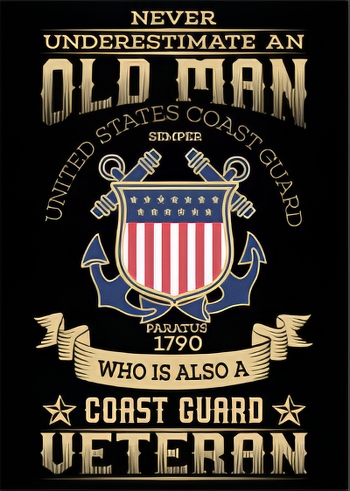
Hang in there, do your best!
In what ways has togetherweserved.com helped you remember your military service and the friends you served with?
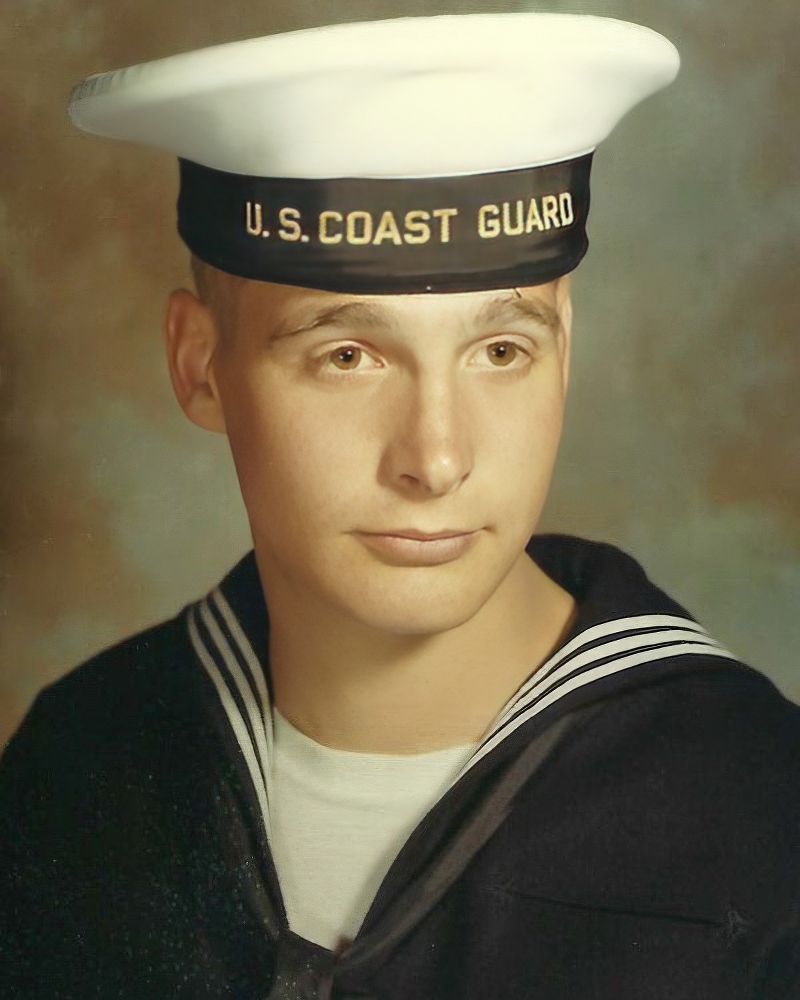
TWS got me to think about my Coast Guard career and what happened, and how it affected my later life. My Coast Guard time was a positive experience, and I need to share it with my fellow vets.
PRESERVE YOUR OWN SERVICE MEMORIES!
Boot Camp, Units, Combat Operations
Join Togetherweserved.com to Create a Legacy of Your Service
U.S. Marine Corps, U.S. Navy, U.S. Air Force, U.S. Army, U.S. Coast Guard

0 Comments